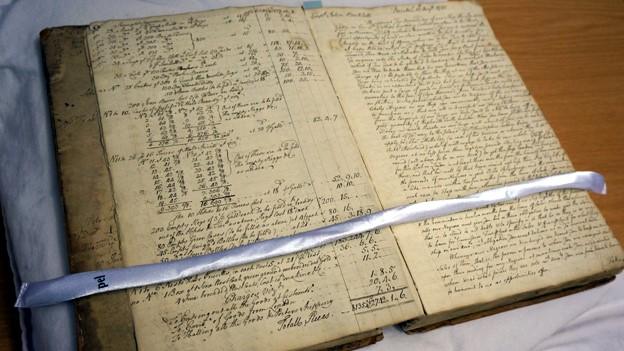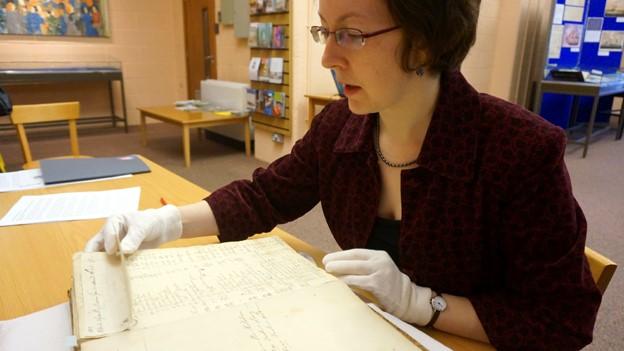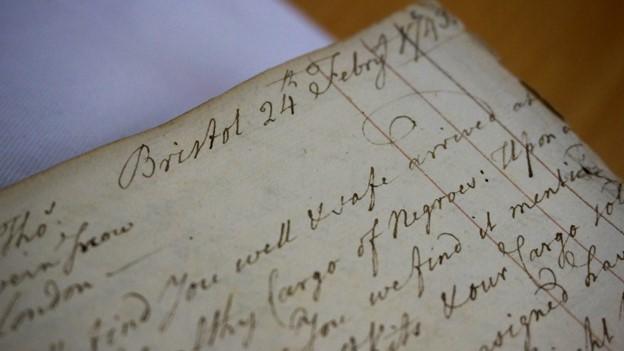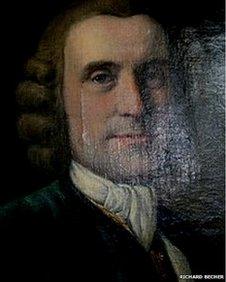Bristol 18th Century slave ledger unveiled
- Published

The handwritten notes in the book are a "vivid" record of the brutal slave trade
A ledger detailing the voyage of a slave ship that journeyed between Bristol, Africa and America has been unveiled.
The 270-year-old document was bought by Bristol City Council at auction for £7,000.
The book belonged to Cranfield Becher, a prominent merchant who moved to the city in the late 17th Century.
The ledger, detailing the journey of the ship Jason Gully, has never been seen in public before.
It details the brutal and sophisticated voyages undertaken by slaving ships in the 18th Century.
Cranfield Becher's ship sailed from Bristol between 1743 and 1746.
Historians say the ledger offers a glimpse into a world dominated by profits and brutality where "human beings and human lives [were] being traded" for the highest price.

Archivist Allie Dillon has been researching the ledger since November
_plan.jpg1.jpg)
The captain was instructed to buy as many slaves as the ship could "conveniently carry"

But the captain was also warned to feed those he bought and not let them be "abused by your sailors"
Archivist Allie Dillion, who has been studying the ledger, said: "To see people described as a commodity, is heart-breaking.
"It's a very vivid reminder of what the trade involved."
The ledger has never been researched and, according to Madge Dresser, associate professor in history at the University of the West of England, gives historians a glimpse into how Bristol's fortune was built on the slave trade.
'Profit margin'

Cranfield Becher's ledger is an insight into the 18th Century slave trade
"The trade opened up unprecedented levels of opportunities which must have been dazzling to people in Europe," she said.
"That they could make so much money shuts out considerations of human beings, especially if they are culturally different.
"I think it's a lesson we could all learn today not to marginalise human suffering when your mind is just on the profit margin."
Councillor Simon Cook said the purchase of the ledger was a "recognition" of Bristol's role in the slave trade.
"Documents like this are part of the healing process for the city," he added.
"It's important to realise where we came from and use that experience and knowledge as we move forward."

In 1750 Bristol ships still transported 8,000 of the 20,000 slaves sent to the British Caribbean and North America